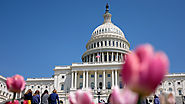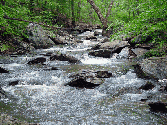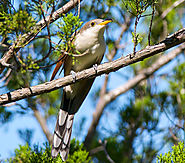-
About
- About Listly
- Community & Support
- Howto
- Chrome Extension
- Bookmarklet
- WordPress Plugin
- Listly Premium
- Privacy
- Terms
- DMCA Copyright
- © 2010-2025 Boomy Labs


Listly by drosen
News, op-eds, editorials, LTEs, blogs and other resources.

In a resounding rebuke of President Trump’s budget, members of Congress from both sides of the aisle came together last month to pass an omnibus spending bill that funds core programs that protect the health and wellbeing of families across the country. So as Congress gets back to work on budget and appropriations issues, we again encourage our representatives to reject any effort that harms the health of our kids and future generations by slashing investments or sneaking in poison pill policy riders. That’s the surest path to passing a 2019 spending bill and showing constituents that Congress can tackle its most basic governing responsibilities.

When President Trump signed the Omnibus spending bill recently he kept the government running. One little publicized development was a move by members of Congress to remove the gray wolf from federal endangered species protection. That was eliminated from the bill Trump signed. The move stops states from managing gray wolf populations and leaves it in federal control through the U.S. Fish and Wildlife Service.

Some in Congress sought to weaken the Clean Water Act through “riders” in the spending bill. Thanks to Senator Durbin, the spending bill not only avoided these riders but also increased funding for protecting Illinois’ rivers, lakes, and streams (such as the Great Lakes as mentioned in this article). Congress, through the leadership of Senator Durbin, chose to protect clean water by investing in the EPA. This was no small feat and we should be immensely grateful for this leadership.

After months of negotiations Congress finally passed the massive omnibus spending bill last week, and on the whole, the final bill ended up being free of some very bad proposed provisions that would have harmed our environment, weakened worker protections, and upended our campaign finance system. A few troublesome riders did slip through that impact our democracy, though, so let’s review.

Poisonous riders were removed from the bill by Democratic leaders, even at the expense of incurring powerful interest group ire. Republican Senator from Alaska Lisa Murkowski was rebuffed when she tried to attach a rider dismantling protections for Alaskan forests. Republican Senator from Mississippi Thad Cochran tried to drain Mississippi’s vital wetlands to make room for territorial expansion by soybean corporations, also to no avail.

Congress passed a spending bill to fund the government for the remainder of fiscal year 2018 that includes robust funding for clean energy innovation—and most importantly, it clears the way for the Department of Energy (DOE) to carry out an effective operation while guarding against many harmful anti-environment policy “riders” that have no place in a spending bill.

last week, with little fanfare or scrutiny, Congress passed, by a vote of 256-167, a $1.3 trillion federal spending package, known as “the Omnibus Spending Bill.” The 2,200-page bill, signed with little enthusiasm by President Trump, was needed to prevent a government shutdown. As is almost always the case with massive spending bills, the devil is in the riders.

The Johnson Amendment is once again facing reversal, this time as a rider to the spending bill Congress must pass to fund the government. Bill riders are provisions attached to unrelated legislation; riders can thus pass without separate vote or debate. “Destroying” the Johnson Amendment is tantamount to further demolishing campaign finance rules. Do we want, need, or benefit from more Dark Money influencing our elections? How will our country benefit by having our religious institutions engaging in political activity? Church and state will no longer be separate institutions in the United States. Democracy will find itself in a more ragged state than it is today, in desperate need of monumental repair.

There is another story line within the broader one, and it too is heartening: the willingness of the Democratic leadership to stand up to mischief-makers in Congress itself. A bill of this magnitude —$1.3 trillion altogether, including hundreds of billions for the military — is fertile ground for legislators who wish to sneak in provisions that are unlikely to survive on their own and thus need the protective cover of a big must-pass bill. As a rule, these so-called riders have nothing to do with spending and are aimed primarily at changing policy or undermining basic laws. Most of the most damaging riders in the bill were devised by Republicans and involved environmental policy. That these and many more riders were deleted from the bill is a tribute to Senator Charles Schumer of New York, the Democratic leader, and Senate allies like Patrick Leahy of Vermont, Tom Udall of New Mexico and Thomas Carper of Delaware, all willing to annoy some powerful interests along the way.

The recent omnibus spending bill included a major policy win for America’s forests in the shape of a dead policy rider originally slipped into the bill by Sen. Lisa Murkowski (R-Alaska). The shifty policy rider sought to hasten a year-long effort to compromise among local stakeholders, whom recognized the need to transition out of unsustainable logging of 800 year-old trees in Alaska’s iconic Tongass National Forest.

It's hard not to take our eyes away from all of the Trump shiny objects — from the Russia probe, to the erosion of staff, to Stormy Daniels. To pass the $1.3 trillion omnibus spending bill, the GOP dropped a number of additional anti-environment riders. Primarily, congressional negotiators rejected Trump's deep cuts to EPA and the Office of Energy Efficiency and Renewable Energy.

Congress has passed a bill to fund the federal government without proposals that could have introduced logging and road-building to millions of acres of America's wildest forests. Key senators rejected "riders" offered by Alaska Sen. Lisa Murkowski that would have exempted Alaska’s two national forests, the Tongass National Forest and Chugach National Forest, from the 2001 Roadless Area Conservation Rule. Right off the bat, these riders could have introduced logging and road-building to nearly 15 million acres of pristine forest in America's wildest frontier.

Notably, the final bill drops several OSHA-related policy riders to ensure that it got enough votes from Democrats to pass. This included dropping stand-alone appropriations legislation Republicans considered in 2017 that would have prohibited the implementation or enforcement of OSHA’s 2016 injury reporting update rule and a measure to block enforcement of OSHA’s silica standard.

An effort to remove the Great Lakes gray wolf from the federal endangered species list failed last week when Congress approved an omnibus spending bill. In the flurry to get a spending plan passed before a Friday deadline, the rider was pulled from the final bill that was signed by President Donald Trump Friday afternoon.

Despite the long odds, in a Congress dominated by polluter allied, anti-regulation members, this “No Cuts, No Riders” campaign paid off when almost all new riders were kept out of the bill and funding levels for EPA, Interior, Energy, and NOAA either stayed level or were increased.

While far from perfect, the bill largely steers clear "riders" that would weaken clean water safeguards. It also maintains and, in some cases, even increases funding support for important water quality programs.

The omnibus spending bill, signed last week by President Trump, was an important victory for rivers and clean water, not only for what was in the bill, but also for what was left out: we were able to fight back several harmful anti-environmental riders, including one that would have prevented public scrutiny and judicial review of the Trump administration’s efforts to repeal the Clean Water Rule.

The Republican Congress didn’t just ignore Trump’s proposals: The $1.3 trillion spending bill actually fulfilled—or even exceeded—many of the funding requests of his Democratic predecessor. In addition to winning increases in domestic spending, Democrats were able to preclude the inclusion of dozens of the same restrictive policy riders that Republicans had tried to add while Obama was president. The legislation retained funding for Planned Parenthood, for example, despite years of Republican promises to prohibit it.

Birds dodged harmful riders that would have negatively impacted the Tongass National Forest, the largest remaining old-growth rainforest in North America, the Endangered Species Act and the Clean Water Act. The bill includes an important fix to the way wildfire suppression and restoration are funded at land management agencies that will allow for more restoration activities. Implements important limits on new border wall construction, including preventing construction in Santa Ana National Wildlife Refuge along the U.S.-Mexico border.

An effort to remove the Great Lakes gray wolf from the federal endangered species list failed last week when Congress approved an omnibus spending bill. Late last year language to remove protections for the animal in Wisconsin and the rest of the Western Great Lakes region was included in the House Interior and Environment appropriations bill. But in the flurry to get a spending plan passed before a Friday deadline, the rider was pulled from the final bill that was signed by President Donald Trump Friday afternoon. The news was hailed by conservation groups who oppose removing wolves from list, which would allow wolf hunts to resume in Wisconsin.

Over the last several months and as recently as Wednesday, preliminary versions of the bill included as many as 12 riders, including one to remove the wolf in Wisconsin and the western Great Lakes region from protections of the Endangered Species Act and prevent any future legal action that would return the species to the list. However, the riders were stripped from the final version of the legislation approved by the House and Senate and eventually signed by President Donald Trump. As a result, the wolf is still listed under the Endangered Species Act and it's uncertain when Wisconsin will resume state management of the species. The wolf has been listed under the ESA since a Dec. 2014 federal court decision. The rejection of the wolf rider was hailed by some environmental groups, including the Endangered Species Coalition, Howling for Wolves and Natural Resources Defense Council.

There’s great news for animals in the final 2018 budget bill that President Trump signed into law today. The bottom line is this: the budget bill includes language to restrict funds from being used to harm horses and to address a purge of key animal enforcement records, it increases federal resources to enforce significant animal protection laws, and it omits riders that would have been devastating for wildlife.

How our government spends our money is a direct reflection of our values, and the $1.3 trillion, 2,232-page omnibus spending bill, overall, is a strong repudiation of the Trump budget proposal. The Leadership Conference, along with a broad coalition of stakeholders, pushed for a significant increase in funding for the Census Bureau so that it can prepare for a fair and accurate count of all persons living in the U.S. in 2020. Congress demonstrated that it takes its responsibility under the Constitution seriously by including a dramatic increase in resources for that important task. That increase, along with a provision that will prevent employers from taking tips from tipped workers and the rejection of many dangerous poison pill riders are steps in the right direction.

In a major win for imperiled species conservation, policy riders to prohibit protections for the gray wolf, lesser prairie-chicken, and Preble’s jumping mouse were omitted from the final text.

Despite yet another morning tweet tantrum, President Trump has finally signed a full funding package for this year that will keep the government open through September. As a member of the Clean Budget Coalition, People For the American Way applauded the defeat of many of the bill's worst poison pill policy riders.